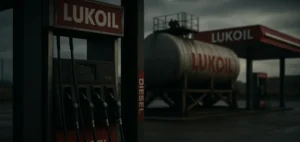Kansai Electric Power Company (Kansai EPCO) has announced it will decommission two of the three 600MW units at the Gobo Thermal Power Station, located in Wakayama Prefecture, by the end of June 2026. Unit 2, which has been offline since April 2016, will be permanently retired on October 31, 2025, followed by the still-operational Unit 1 on June 30, 2026, according to the disclosed schedule.
Targeted reduction of oil-fired assets
Located on a 35-hectare artificial island in Gobo City, the oil-fired thermal power station was commissioned in two phases between September 1984 and March 1985. It originally had a total installed capacity of 1.8GW, divided into three identical units. Kansai EPCO stated it is considering entering the remaining unit into future backup power auctions or proceeding with its full decommissioning.
The planned retirement of the two units is part of a broader strategic review of Kansai EPCO’s thermal generation assets. The company’s oil-fired portfolio now consists solely of the Kansai International Airport Energy Center, a 40MW kerosene-fired facility maintained for specific airport energy needs.
Redeployment of thermal investment
In addition to Gobo, Kansai EPCO operates the 1.8GW coal-fired Maizuru power station, along with four gas-fired plants using liquefied natural gas (LNG), including the 1.8GW Nanko facility in Osaka and the 1.44GW Himeji No. 1 plant in Hyogo. These two LNG plants are slated for repowering in the early 2030s as part of the company’s investment strategy.
The phased retirement of oil-fired capacity reflects Kansai EPCO’s reallocation of investment priorities, focused on modernising its thermal assets and optimising operational costs within the context of an evolving energy mix.






















